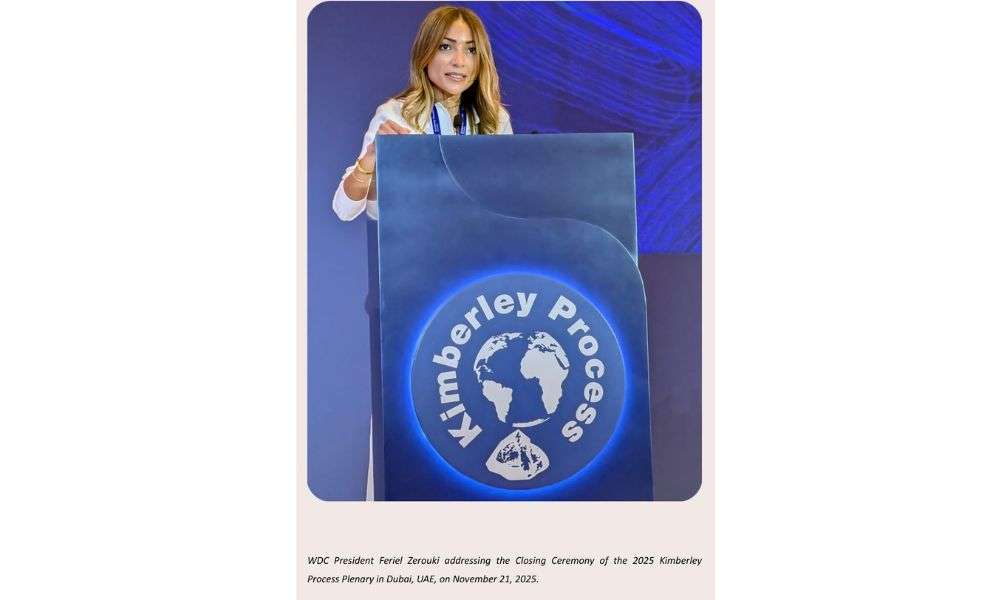
The World Diamond Council (WDC) on 21st November expressed deep disappointment after a small group of Kimberley Process (KP) Participants blocked long-awaited reforms aimed at improving safeguards for Africa’s diamond-mining communities.
For the past three years, the KP Review and Reform Committee had been working on the most extensive reform initiative in more than 20 years. These efforts brought the KP closer than ever to updating the definition of “conflict diamonds” and formally recognizing protections for mining communities.
However, despite this unprecedented alignment, the reforms failed to gain approval—not due to conflicting evidence or alternative proposals, but because a few Participants prioritized politics over people.
“Progress was killed in pursuit of the impossible,” said WDC President Feriel Zerouki. “Today, some have implied that the lives of African diamond miners matter less than others. They have suggested that protection is a privilege rather than a principle.”
A strong majority had endorsed expanding the KP definition to reflect current forms of violence in mining regions. The proposed reforms included:
- Broadening the definition of conflict diamonds to include violence by armed groups beyond rebel forces, such as militias, mercenaries, criminal networks, private military and security companies, and other non-state actors.
- Formally acknowledging diamond-mining communities within the KP’s protective mandate.
- Adding armed conflict and systematic or widespread violence to the list of actions addressed by the Kimberley Process.
These changes aligned with international best practices. The research supporting them—shared repeatedly over three years—was never disputed, nor was any counter-evidence presented.
Although the setback is significant, the WDC reaffirmed its confidence in the Kimberley Process as an essential global mechanism.
“Today’s result is not the KP’s failure,” Zerouki noted. “Most Participants stood firmly with Africa. The setback came from the actions of a few, not from the Process as a whole. And while they stopped progress today, they cannot change the direction we must go.”
She urged KP Participants to view this moment as a call to strengthen their commitment to protecting mining communities.
“Hope is not a strategy,” Zerouki said. “Hope must now become pressure, accountability, and consequence. We will continue—relentlessly—to work for a Kimberley Process worthy of the lives it is meant to safeguard.”

